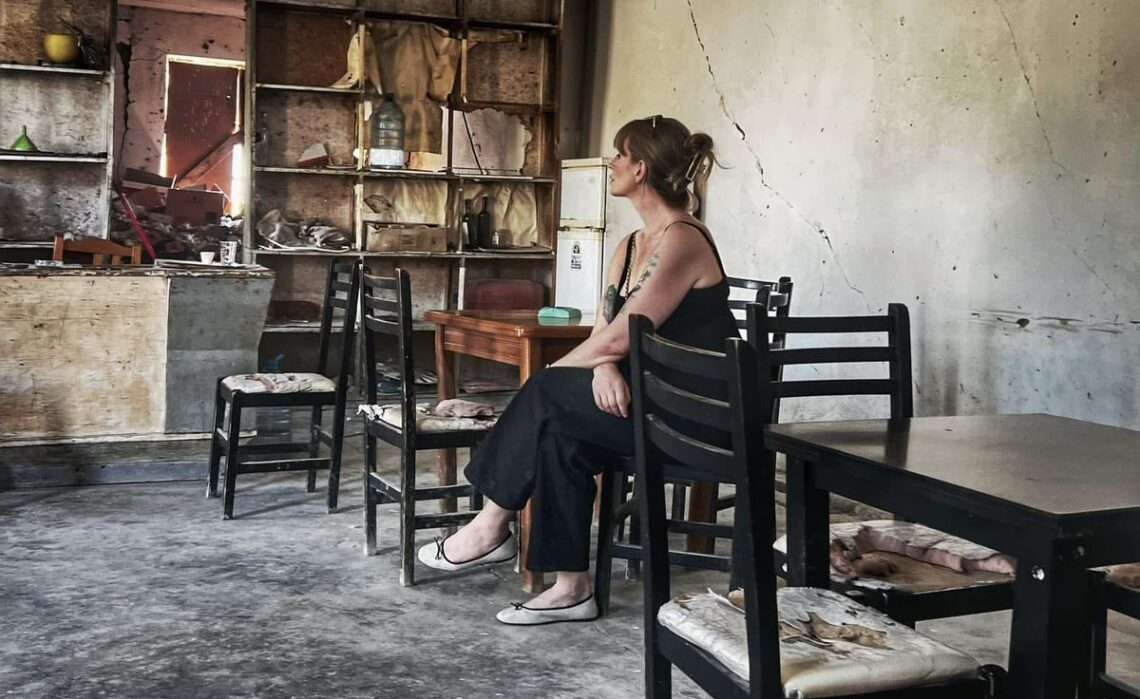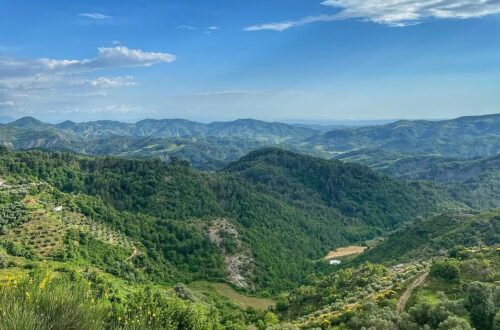If you ask people about Shetel, the majority will not know what or where you are talking about. A small village, not far from Shijak in Durres county, Shetel is barely even on the map, clinging onto the modern world with slippery fingers in the same way its small, stone houses cling onto the side of the hill on which it sits.
There is no information online about Shetel—no Wikipedia page, no TripAdvisor, and no Welcome to Shetel site informing visitors of what they can do here. That is because the hotel is one of Albania’s many forgotten places.
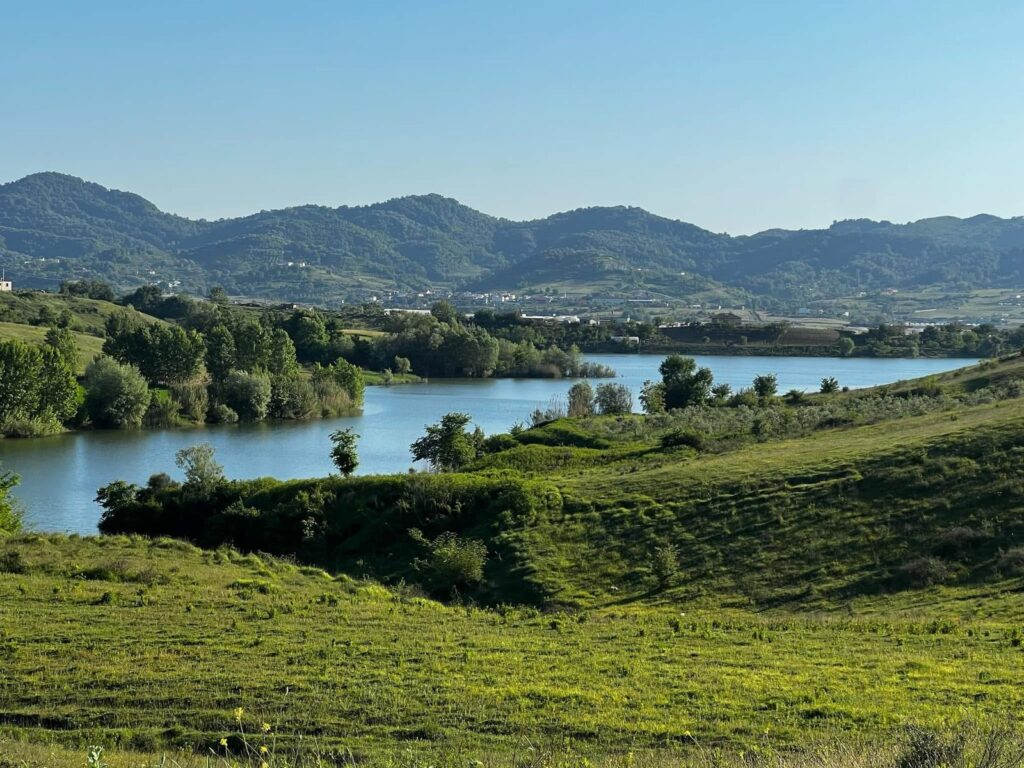
Located in the middle of Durres County, Shetel sits at the top of a long and very bumpy road that snakes up a large hill overlooking Liqeni i Pjezes and Liqene i Hardhishtes. While there are signs of life around it—a cantina, a few agritourism farms, shops, and a mosque in nearby Kenete—that is about it.
The village itself has long been left to rot, with most houses empty and in disrepair, long locked up and guarded only by large dogs with angry barks. In the centre of the village, the medical clinic and school are long closed, and there are no shops to serve those who remain.
We stopped the car in the dusty, untarmacked square, startling a few chickens that were having some kind of meeting in its centre. Two men stepped down from a large, half-fallen building, eyeing us suspiciously. One jumped in a car and made a swift exit, and the other visibly relaxed when I told him my partner was from Shijak and I was just here out of curiosity.
He informed me that the building behind him, with crumbling plaster, missing windows, and a swinging door, was the local cafe, and it could be mine for the princely sum of EUR 10,000, furniture included.
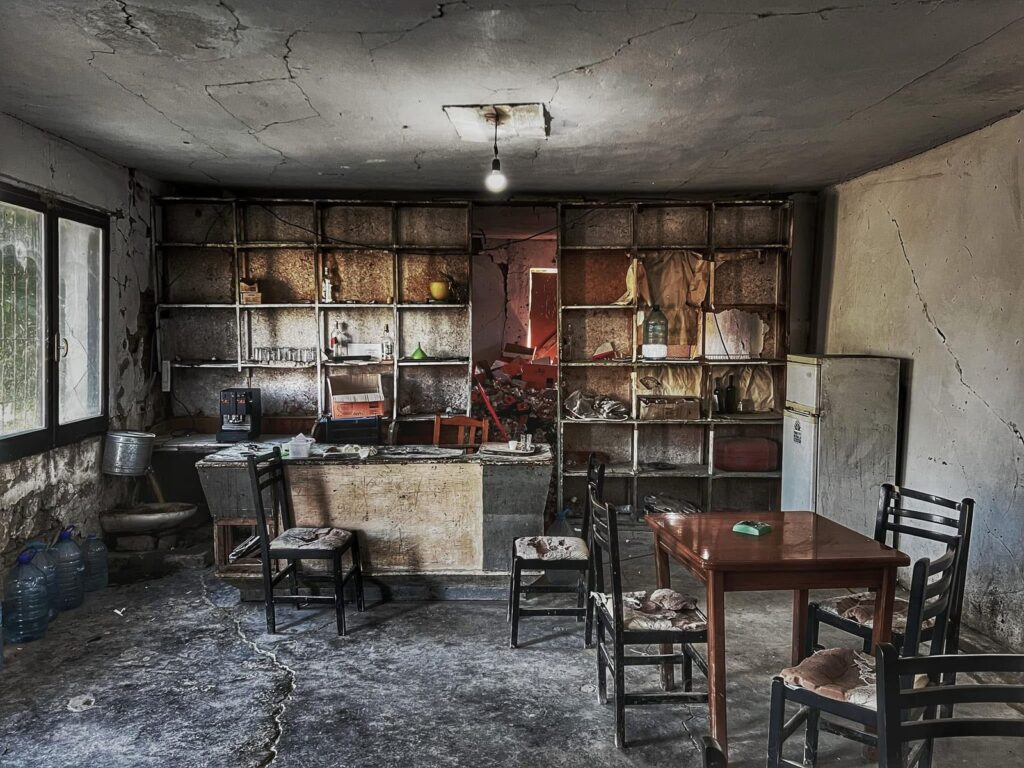
With thirst prickling in my throat, I stepped inside and was hit by a dry but pungent smell of rubbish, stale coffee, and the last tendrils of cigarette smoke. To my right was a makeshift ‘bar’ with a small espresso machine and piles of empty cups and other kinds of rubbish. A number of mismatched tables and chairs were laid out in front of it, all in various states of disrepair and coated in a layer of dust. Behind the coffee machine was a hole in the wall, behind which trash, plastic, cans, bottles, and waste paper were piled around a metre high, tossed there without a care in the world.
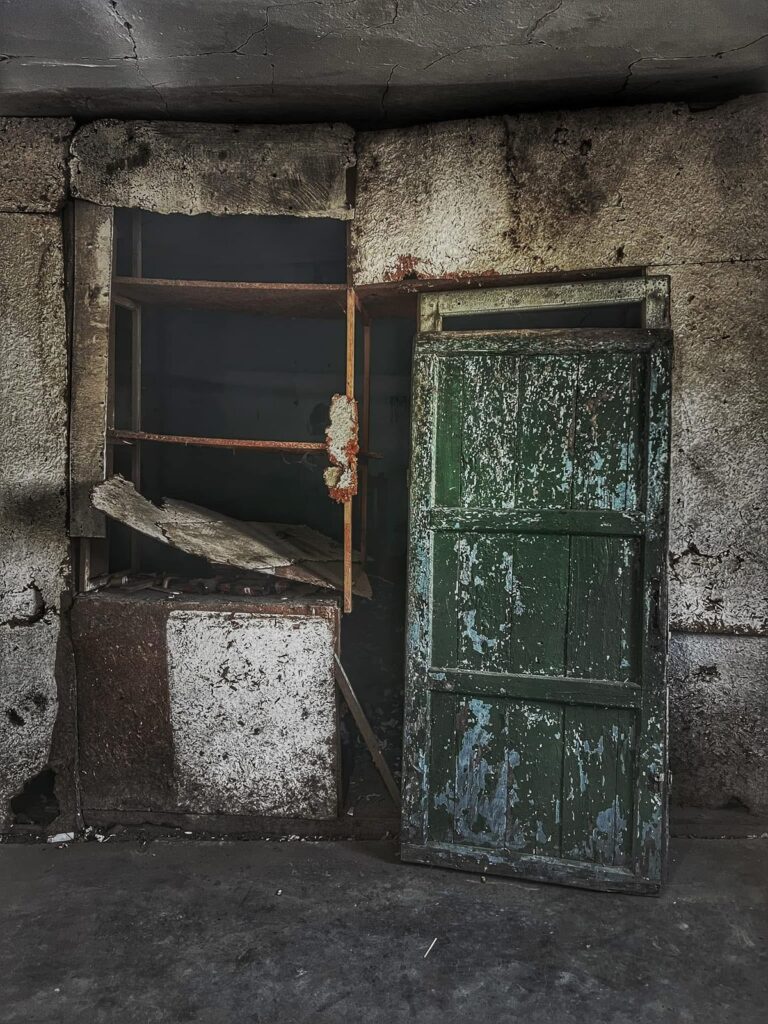
At the other end of the room, another hole in the wooden partition revealed a similar situation—decades-old trash piled high and interspersed with broken bricks and bits of plaster. Deciding against a coffee, I ventured out again into the sunlight and was greeted with a handful of mana fruit, picked from a nearby tree by the cafe owner and his young son.
They explained that today, the village is populated by a handful of people, with others returning from nearby villages just to farm or tend to the land. This is a far cry from the 1,500 families that it was once home to. Some grow tobacco, others fruits like grapes, and others just enough produce to put on their own tables. Others work the land of their family members, guarding and maintaining it while they lead their lives in Italy, Greece, and beyond.
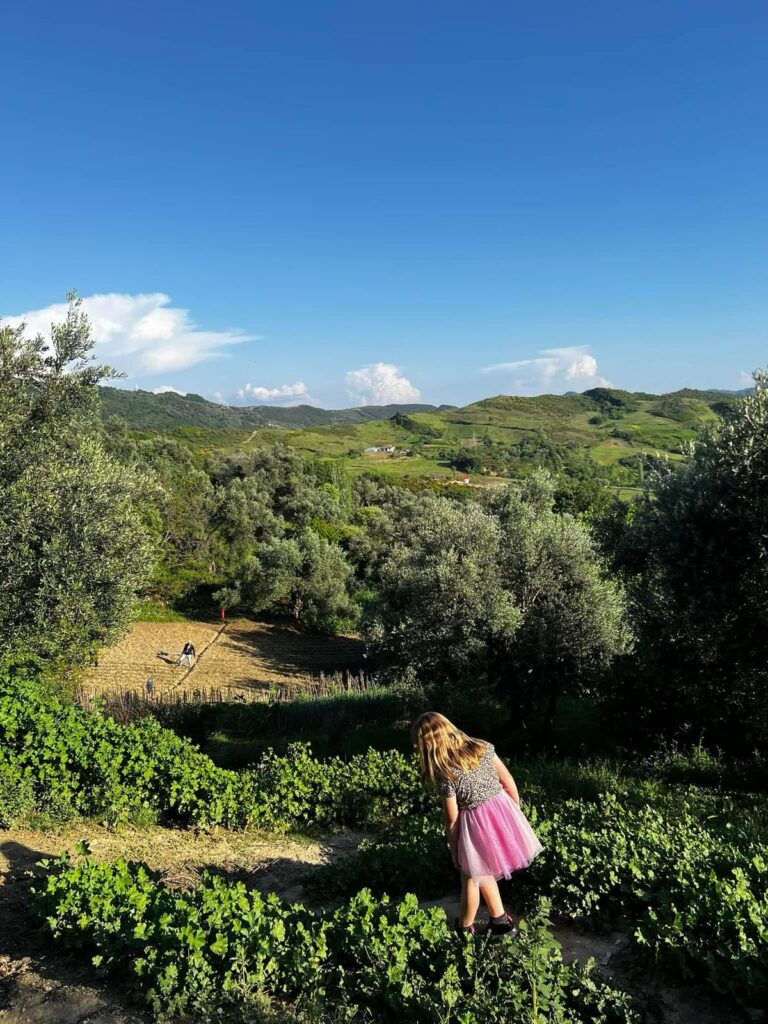
One of the villagers told me that the land, including its hilly terrain and the minerals in its earth, is perfect for agriculture, but a lack of labour hampers their efforts. They continued that tobacco is the primary source of income, explaining how seeds are planted in February and watered every two days. Come April, the seedlings are removed from greenhouses or gardens and grown in the surrounding fields. Then, the villagers observe the blooming of the flowers, ensuring they are plucked in time to allow the leaves to continue growing. If the flowers are left to bloom, they suck the life from the rest of the plant, changing the taste and rendering the leaf useless.
Once the leaves reach that pivotal moment of maturity in their lives, they are plucked, gathered and sewn together in bunches before being hung to dry in warehouses or other buildings. This is completed before July, when the tobacco is dry and ready to be sold. While this product does not bring vast amounts of income, it is enough to put bread on the table, they said.
